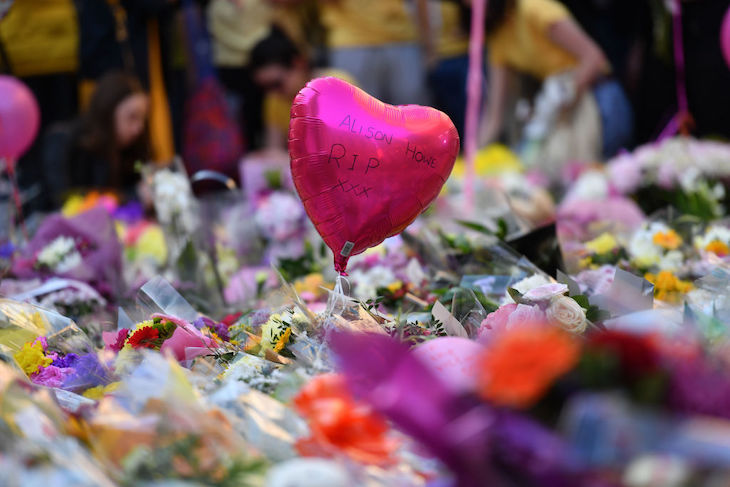The BBC have reacted to the Manchester Arena bombing, carried out by an Islamist maniac, by providing us with a cautionary tale of how easy it is to be radicalised by…the extreme right.
The fifteen-year-old boy, named as John, who is featured in the online article describes how he was manipulated into ‘hating Islam’ by consuming hours of dodgy online content and eventually attending some demonstrations.
‘To see Manchester attacked – a city where I spent a lot of time – really fuelled my anger,’ he said. ‘I stopped caring who knew about my involvement and moved from mainly speaking online to actively trying to recruit people and sharing propaganda.’
John was a plainly troubled young man in need of some solid parenting and guidance. But it is bizarre for the BBC to choose to highlight this story in the context of the conclusion of the Manchester Arena inquiry. The piece makes no mention of the hateful ideology that motivated Salman Abedi, the Manchester bomber. Why?
Islamist extremism is a bigger threat to Britain
John’s tale has a happy ending: he now works for a charity helping those who have quit far-right groups. This outcome contrasts starkly to what happened in the case of Abedi, whose warped views led him to think he had divine permission to annihilate himself and 22 innocent youngsters with a homemade shrapnel bomb.
With the Manchester atrocity back in the headlines this week, it is the extremism that led Abedi to carry out this attack that the BBC should be focusing on. Instead, the BBC chooses to headline the story of a former right-wing extremist. Far-right extremism is, of course, an issue and it must be dealt with. But Islamist extremism is a bigger threat to Britain: as a recent review of the Prevent programme revealed, Islamist plots constitute 75 per cent of hard ‘downstream’ counter-terrorism cases. The body count, late stage plots and prison terrorist population does not lie. Dealing with this type of fundamentalism must be the focus of our security services – and, by extension, the media.
It’s true that the BBC’s article goes on to describe the work of a brave Muslim community activist in Manchester who uses the medium of music, much underappreciated as a protective influence against extremism, to stop young people becoming radicalised. But even here, progressive dogma intrudes.
‘There was a lot of social deprivation and people felt marginalised and disenfranchised,’ Ismael Lea South, the Muslim ex rapper says. The suggestion here – whether intended or not – appears to be that young extremists are hapless victims of their environment. Thinking about radicalisation through such a social justice lens is unhelpful. People are drawn to mass murder in the name of ideology because they want to be, not because they are victims; not because they have no youth club or a bad bus service. Casting deprivation as a main rather than adjacent factor in radicalisation might play well with parts of the BBC’s audience but it’s far from the whole story.
If Britain is to tackle the rise of the extreme right, we must be honest and robust in focusing on the much greater threat of Islamist extremism. This approach must also apply to the way the media reports on radicalisation. The BBC’s article quotes John referring to: ‘The far right and faith-based extremists’. Why is this camouflaged description of Islamist terror as ‘faith based’ not unpacked? I’ve yet to see a Methodist suicide bomber, after all. Trying to balance the books on the harm caused by far right and Islamist terrorism has, it seems, become a malign art form.
Focusing on the far right at the expense of talking about Islamist extremism risks playing into the hands of the far right. Neofascist recruiters are getting better at feeding this entrenched distortion back to their target audience. They amplify a narrative that suggests the authorities are too weak to challenge Islamists – or even talk properly about Islamist fundamentalism, such as that which motivated Abedi. We must make sure we don’t do their work for them.







Comments